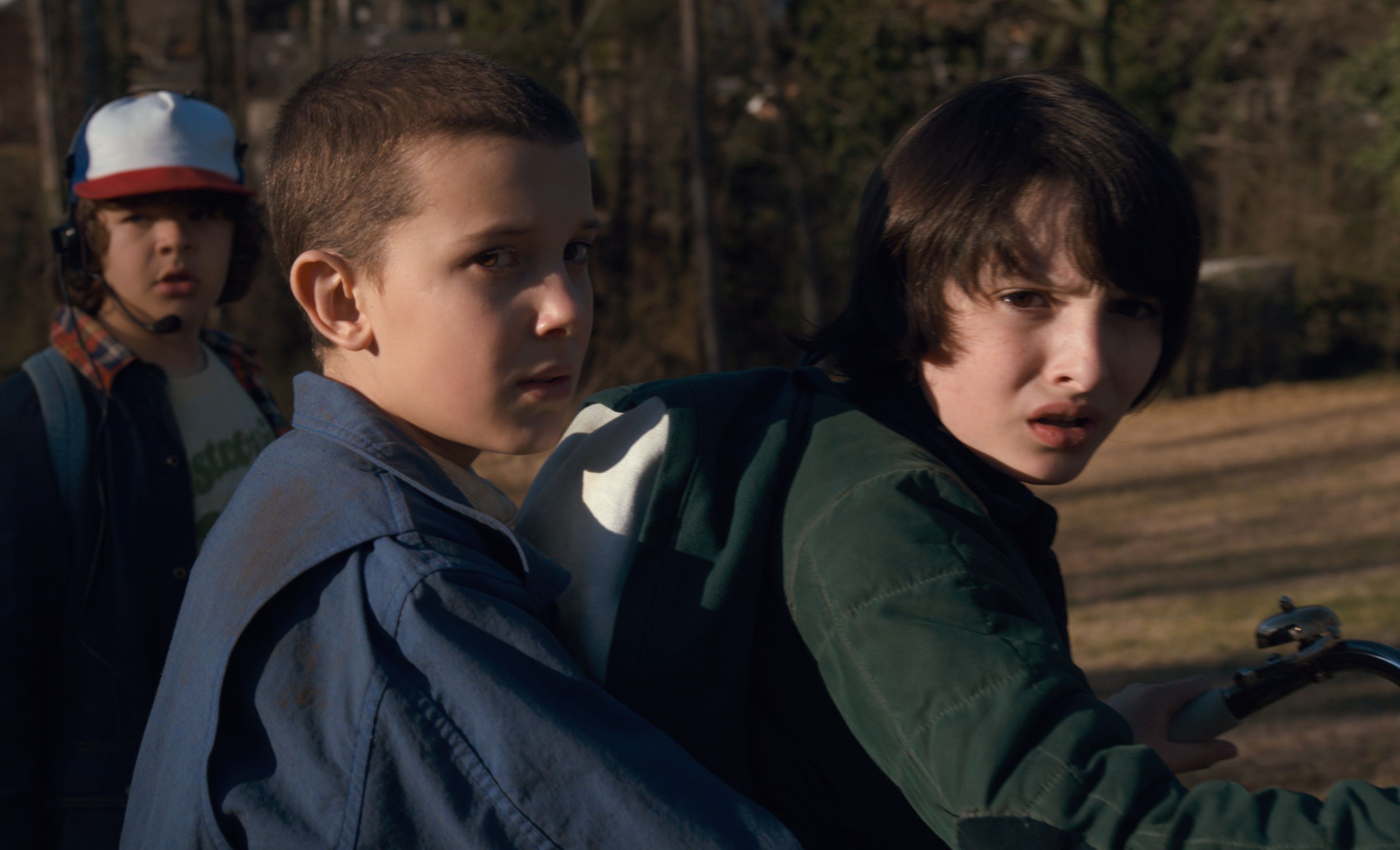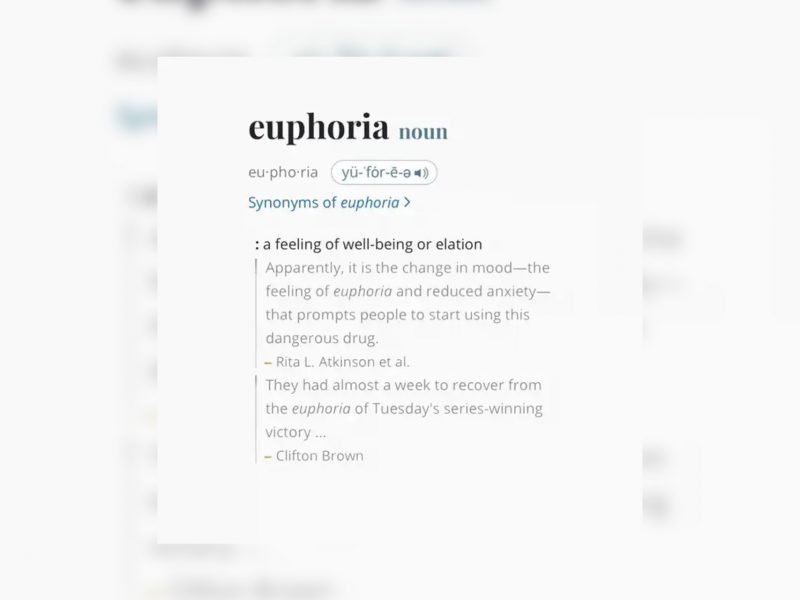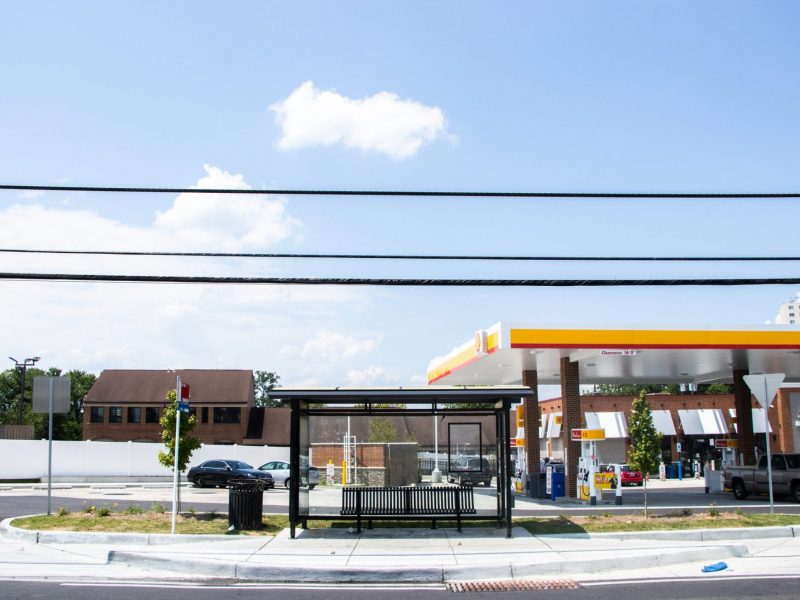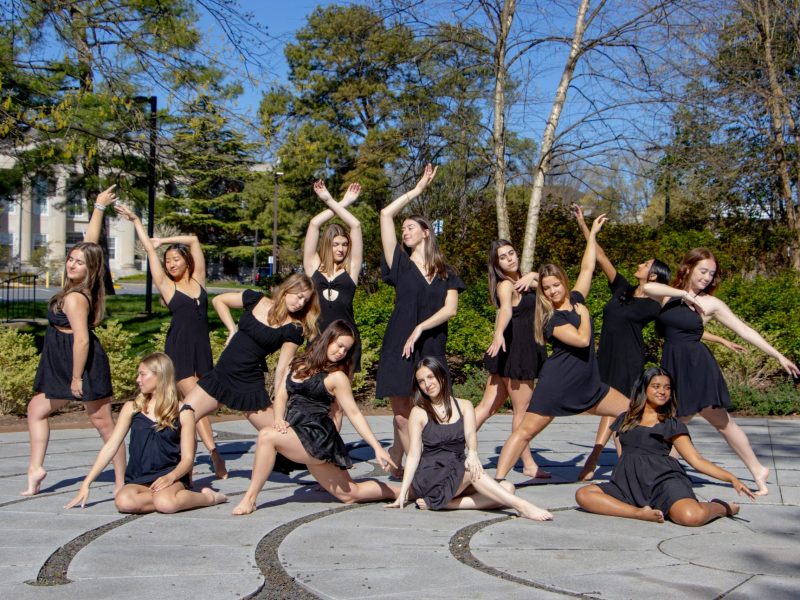I expected to review Stranger Things pretty easily. I expected to find a tiny wood-grain cubicle in McKeldin Library, whip out my laptop and print a rough draft in an hour or two. I expected for the words to come almost effortlessly, to clearly and articulately describe how great of a show Stranger Things is. But as I’m sitting here in my cubicle, the usually inspiring white noise of a library does nothing for me. Instead it seems like all conscious thought has been derailed as my inner nerd harps on one thought: an adolescent runaway girl with unidentifiable — but definitely lethal — powers and a wicked buzz cut claimed the hearts of millions this summer. Awesome.
Set in 1983 Indiana, the first season of Stranger Things primarily follows the story of Mike (Finn Wolfhard), Dustin (Gaten Matarazzo) and Lucas (Caleb McLaughlin), a middle-school trio searching for answers after their friend, Will (Noah Schnapp), mysteriously disappears in the dead of night. In doing so they stumble upon Eleven (Millie Bobby Brown), the girl with the buzz cut and super powers. The beginning of a rocky friendship forms, and soon they find themselves in the midst of nosy parents, evil supernatural forces and a government conspiracy gone horribly wrong.
One of the traits I fell in love with right off the bat is the traditional ’80s setting. It’s not the overdone neon leg warmers and ratted hair ’80s either. It’s the banana bicycle seat, ten-hour long Dungeon and Dragon’s campaign, inch-thick lenses ’80s that dominates this thriller and evokes nostalgia in all age groups, — even when the show scares you to death.
Speaking of scared, let’s talk about Winona Ryder. Ryder plays Will’s mom, Joyce, and she is freaking out. Not only does Ryder phenomenally portray the gut-wrenching terror produced by a missing child, she also delivers a frightening mental breakdown. At one point she’s literally hiding under a desk with a ball of Christmas lights, shaking as she frantically waits until the next time Will communicates with her through faint flickers. It’s disturbing, yet you can’t look away.
Millie Bobby Brown also shines as Eleven, absolutely kicking ass in this show. Eleven grew up isolated in a government institution, forced to use her powers by the Department of Energy. Brown’s incredibly distant and unresponsive interpretation of Eleven not only adds the perfect counterpoint to the rest of the cast, it also provides yet another layer of creepy to the show. At the same time the actress makes it clear that Eleven is still just a misunderstood little kid, one that audience members can identify with and love. Even when Eleven snaps people’s necks and throws kids across yards with her mind, we still adore her.
What really makes this show work though is the pure foundation of it. Instead of creating a huge season full of filler episodes and irrelevant subplots, creators Matt and Ross Duffer focused their attention on making eight quality episodes. Each episode is not only relevant to the plot, but clearly well thought out and detail-oriented, not to mention beautifully shot. There’s no lack of character development (save for Barb), no gaping plot holes and no dull moments.



